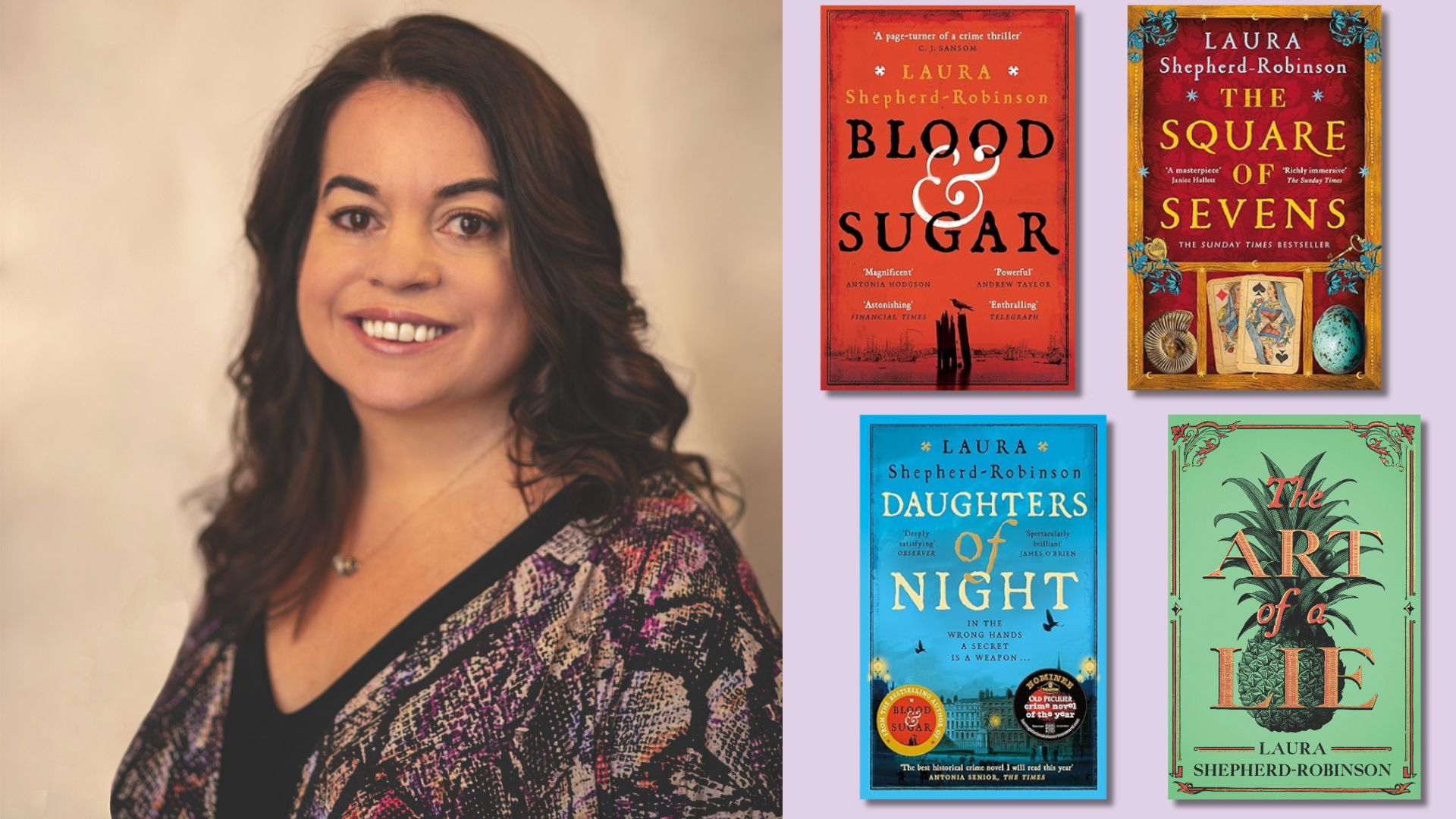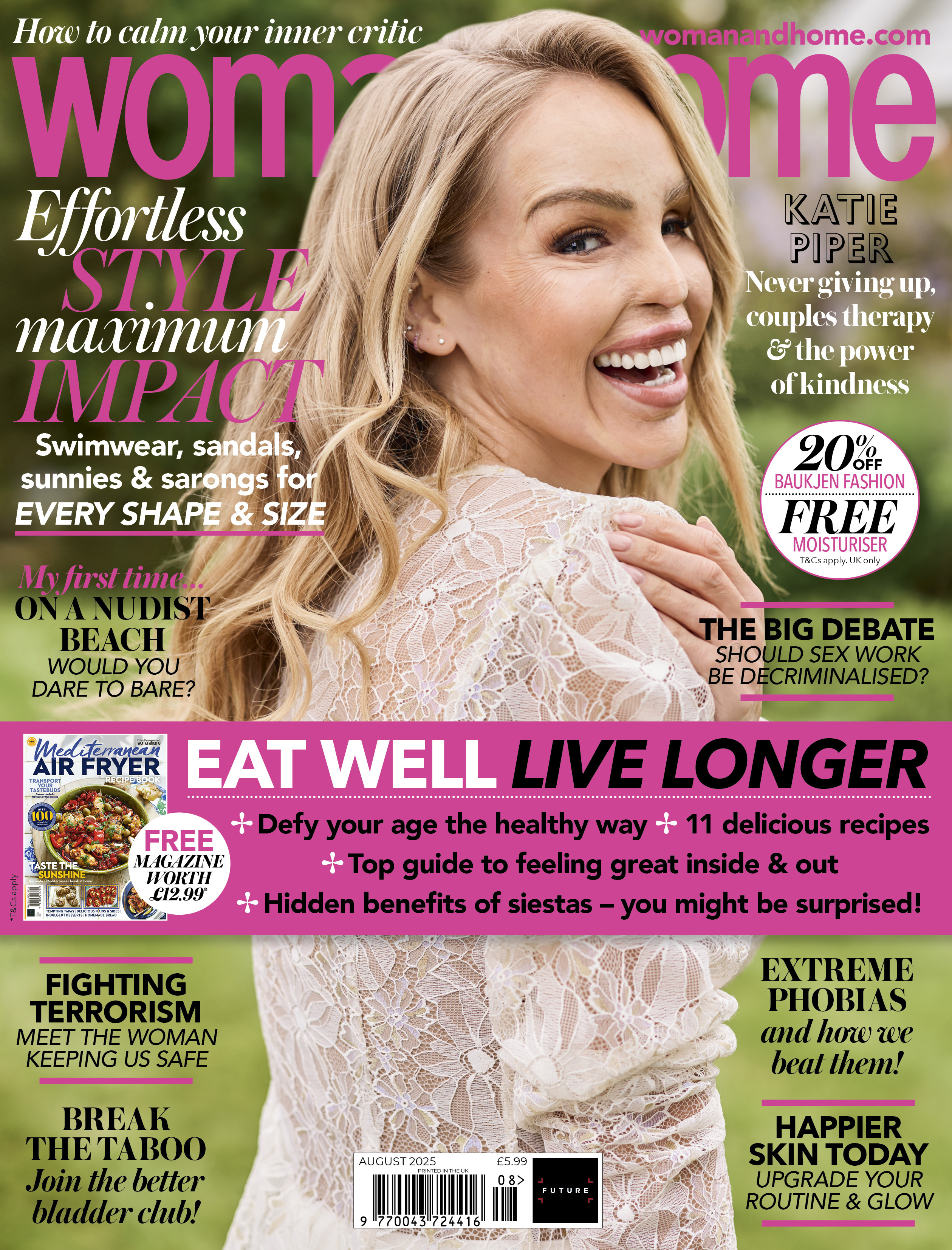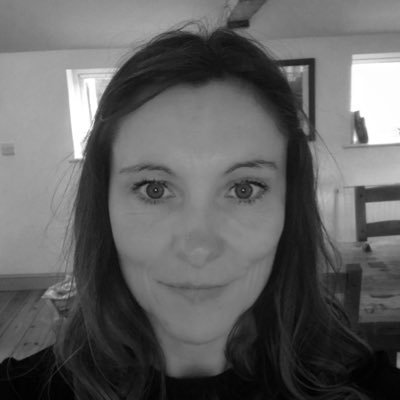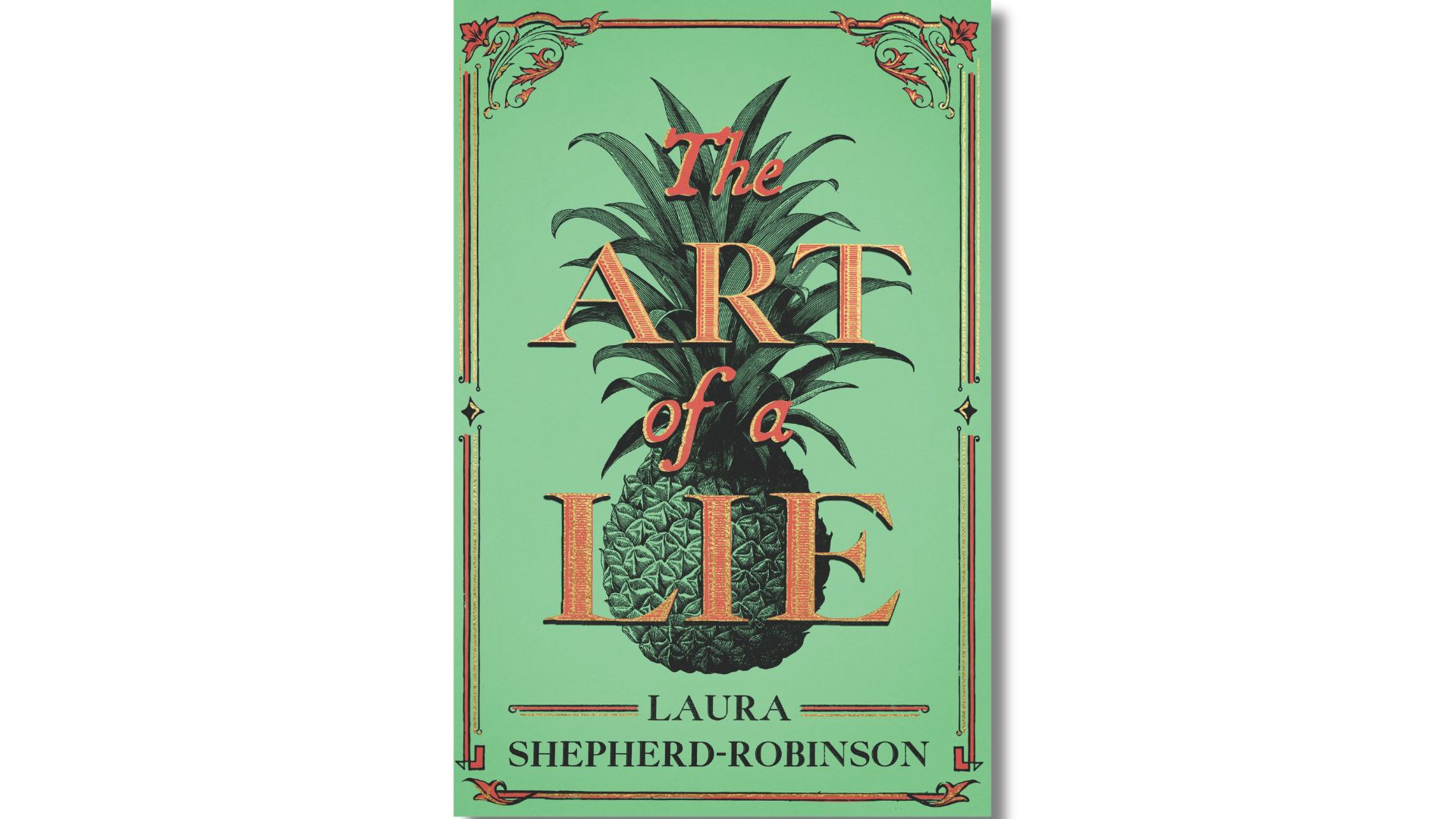"I wanted to write about the 'middling' people who have been overlooked" – Laura Shepherd-Robinson on her new instant bestseller
The historical crime author tells us about the inspiration for her new book, The Art of a Lie, the delicious ice cream recipe she'd love to try, delving into morally flawed characters and what she'd keep in her Georgian handbag

Sign up to our free daily email for the latest royal and entertainment news, interesting opinion, expert advice on styling and beauty trends, and no-nonsense guides to the health and wellness questions you want answered.
You are now subscribed
Your newsletter sign-up was successful
Want to add more newsletters?

Daily (Mon-Sun)
woman&home Daily
Get all the latest beauty, fashion, home, health and wellbeing advice and trends, plus all the latest celebrity news and more.

Monthly
woman&home Royal Report
Get all the latest news from the Palace, including in-depth analysis, the best in royal fashion, and upcoming events from our royal experts.

Monthly
woman&home Book Club
Foster your love of reading with our all-new online book club, filled with editor picks, author insights and much more.

Monthly
woman&home Cosmic Report
Astrologer Kirsty Gallagher explores key astrological transits and themes, meditations, practices and crystals to help navigate the weeks ahead.
Known for her historical thrillers set in 18th-century England, Laura Shepherd-Robinson worked in politics for nearly 20 years before embarking on a career as a novelist.
Her award-winning debut novel, Blood & Sugar, was followed by two more highly acclaimed books, earning bestseller status. Her latest book, The Art of a Lie, is a historical cat-and-mouse thriller which was released on 10 July and became an instant Sunday Times bestseller.
Set in 1749 London, widowed confectioner Hannah Cole battles societal prejudice and financial ruin after her husband’s murder. But a mysterious fortune, a charming stranger and the allure of ‘iced cream’ offer hope, despite the secrets that threaten everything.
"I have always loved St James’s, with its luxury shops – some of which date back to the 17th century in origin. Hannah has a shop on Piccadilly. She is struggling. That is until the handsome William Devereux turns up and introduces her to a new craze called iced cream. It’s made in a similar way to today, but they put it in a bowl over ice and salt.
"Forget Heston Blumenthal! Long before he was making mustard ice cream, the Georgians were using flavours such as Parmesan and asparagus. I really want to try brown bread ice cream. They sprinkled bits of brown bread with sugar and toasted them. You had a kind of French-toast-and-cookie-dough ice cream effect.
"I am fascinated by the Georgian era – the period all my books have been set in – but this time I wanted to write about the ‘middling sort’. They aren’t the thieves, prostitutes and poor people living in the slums, and they’re not those living in the grand houses of Bridgerton. They were the people who really grew in size over the course of the 18th century. They ran small shops and businesses, and were generally overlooked.
"A lot of women ran businesses in Georgian England. They faced legal and financial obstacles, but also criticism and social censure for what they were doing – but they did it nonetheless, and often very successfully.
Sign up to our free daily email for the latest royal and entertainment news, interesting opinion, expert advice on styling and beauty trends, and no-nonsense guides to the health and wellness questions you want answered.
"Characters that are all good or all bad are the least interesting because, morally, we are all flawed. Hannah and William certainly are, but someone once gave me some great writing advice: even the darkest villain of the darkest book or film is the hero of their own movie. They will always justify what they’re doing to themselves and others, and why they think they’re on the side of right.
"Fact can be stranger than fiction – especially with the Georgians. They did things that were much more interesting and outrageous than anything I could ever think of, so the research informs the book.
"I make my husband come on walks with me and I tell him everything that’s broken about the book I’m writing. In the process of telling him, I can talk myself into a solution. He’s got the patience of a saint.
"I worked in politics for 20 years – until one day I woke up and said to my husband, ‘I’m thinking of leaving my job and writing a novel.’ It was an idea I’d had since my late 20s. Politics was good grounding. My books are about thieves, liars and psychopaths – but, more seriously, many of my best friends are still in politics and none of them are like that.
"Power is interesting, though. Any good book, whatever its genre, has conflict, and you can’t really have conflict without power.
"Three things I’d keep in my Georgian handbag? A flushable toilet wouldn’t fit, so I’d have foundation (the Georgians were obsessed with good skin), my Kindle so I could have the books I like, and a pineapple. They were worth so much, I could sell it and buy everything else I needed!"

This article first appeared in the August 2025 issue of woman&home magazine. Subscribe to the magazine for £6 for 6 issues.

It’s safe to say woman&home’s Books Editor Zoe West has read a LOT of books. An avid young bookworm obsessed with the misadventures of red-haired orphan Anne Shirley, Zoe never lost her love of reading. The fact she now gets to do it as her job is a constant source of wonderment for her. Zoe regularly interviews authors, writes features, hosts live book events and presents social media reels. She also judges book prizes, which includes this year’s Theakston Crime Novel of the Year and Nero Book Awards.
You must confirm your public display name before commenting
Please logout and then login again, you will then be prompted to enter your display name.

